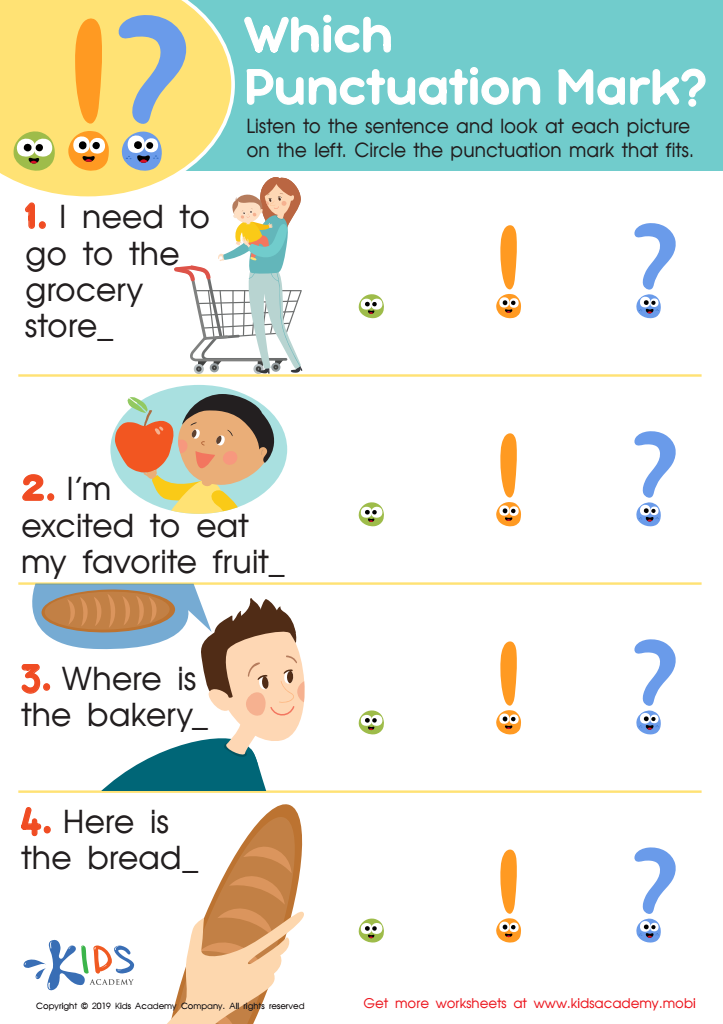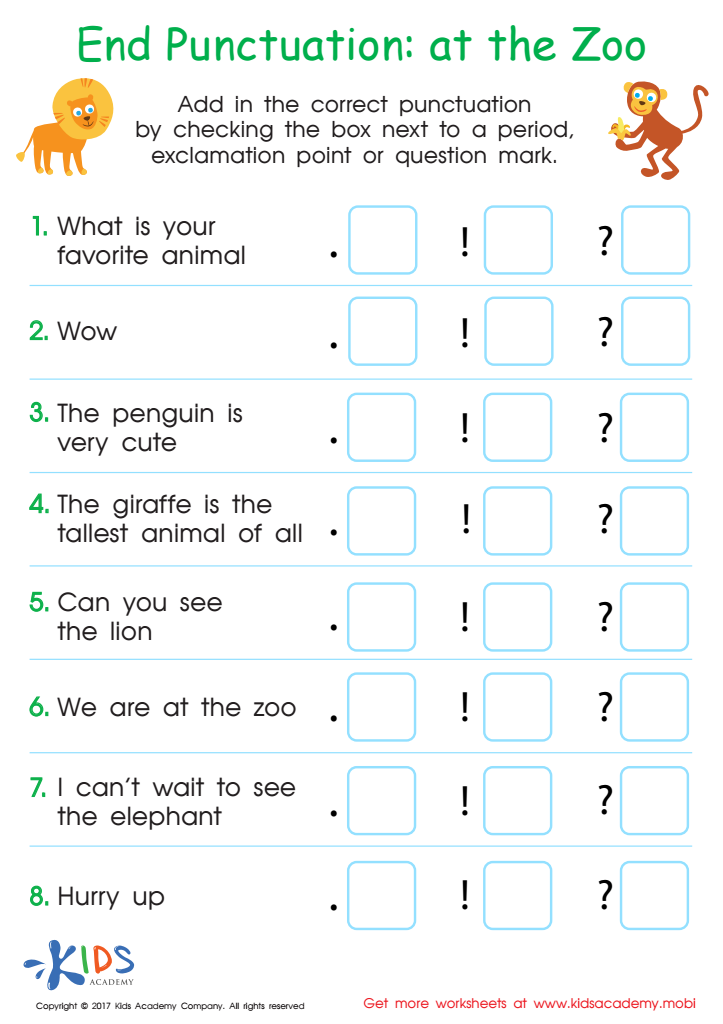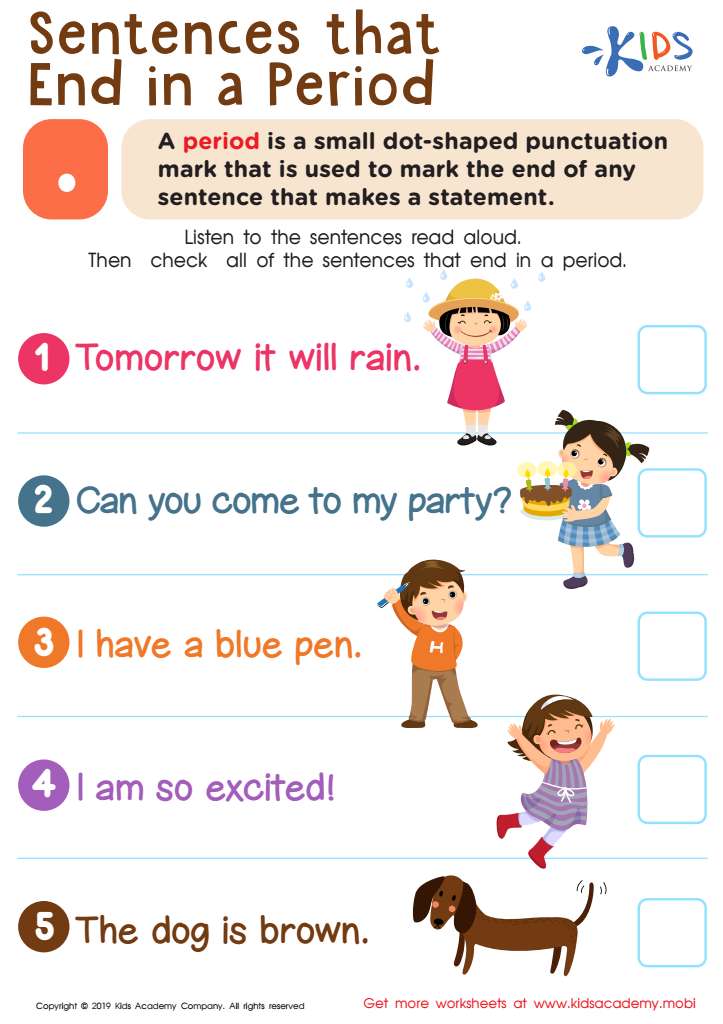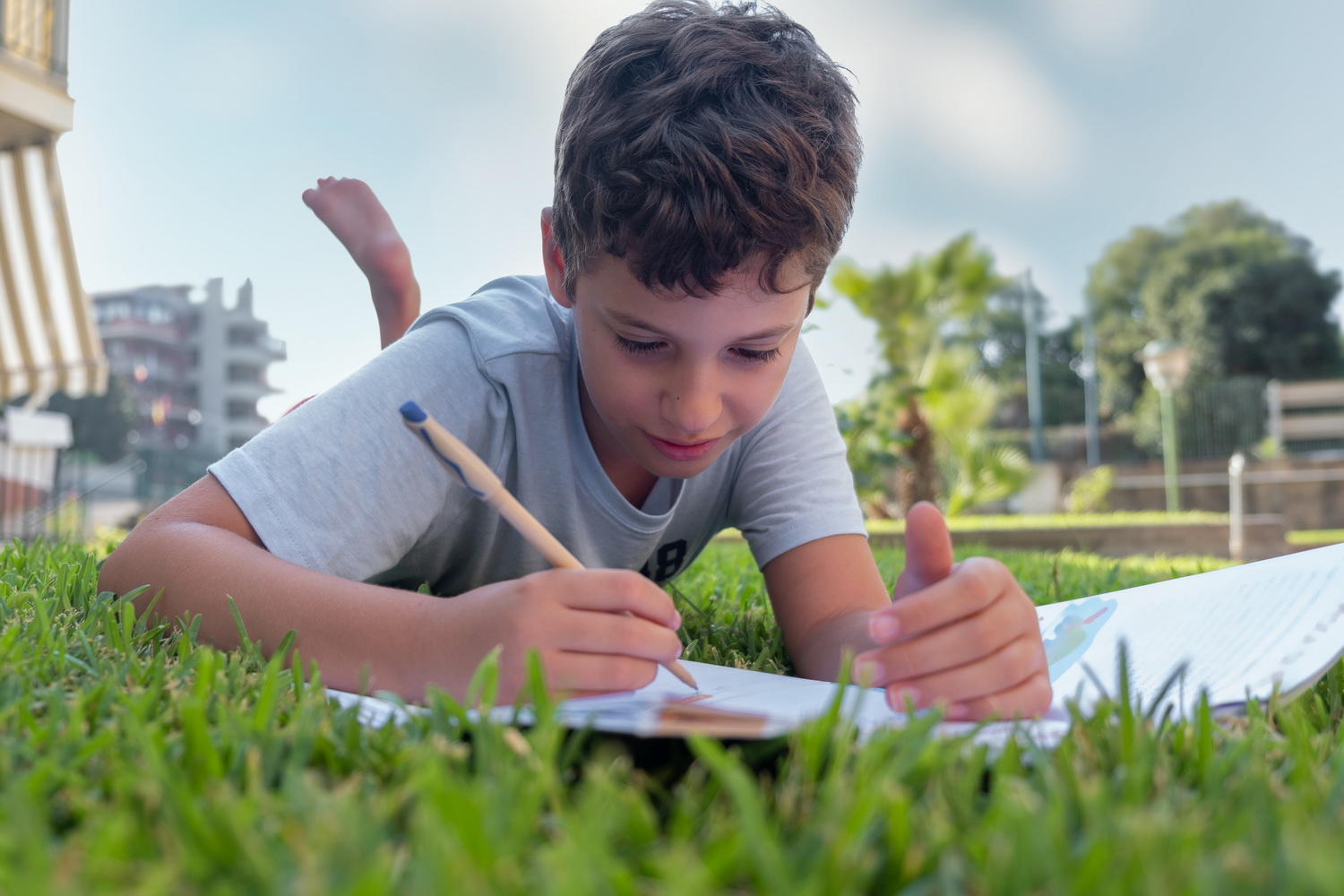Sentence completion Punctuation Worksheets for Ages 3-7
3 filtered results
-
From - To
Our Sentence Completion Punctuation Worksheets for Ages 3-7 foster young learners' writing and reading skills. These engaging worksheets help children practice capitalization, end marks, and other punctuation fundamentals by completing sentences. Ideal for beginners, they feature vibrant illustrations and simple prompts to captivate and motivate early writers. By focusing on sentence structure, these activities enhance comprehension, grammar, and early literacy abilities. Designed by education experts, our printable resources provide a solid foundation for fluent and confident writing. Perfect for home or classroom use, these worksheets make learning punctuation fun and effective for young minds.


Which Punctuation Mark Worksheet


End Punctuation: At the Zoo Worksheet


Sentences That End in a Period Worksheet
Sentence completion and punctuation are essential, even for young children aged 3-7. At this formative stage, children are rapidly developing their language and cognitive skills. Introducing them to sentence completion helps expand their vocabulary, encourages logical thinking, and assists in building coherent communication abilities. When they learn to finish sentences, they practice organizing their thoughts, an early step towards writing proficiency.
Punctuation, meanwhile, plays a critical role in understanding the structure and meaning of sentences. Teaching young children about basic punctuation marks like periods, question marks, and exclamation points helps them grasp the nuances of written language, such as knowing when a sentence ends, when a question is asked, or when someone is excited. This foundational understanding of punctuation aids reading comprehension and fluency, enabling them to interpret text more accurately.
Moreover, focusing on these skills early can prevent potential future challenges in writing and reading comprehension. It helps children develop better communication skills and fosters a love for reading and writing. For parents and teachers, prioritizing sentence completion and punctuation means setting children up for academic success and effective communication in later years. In essence, it's an investment in their future literacy and overall educational development.
 Assign to My Students
Assign to My Students





















